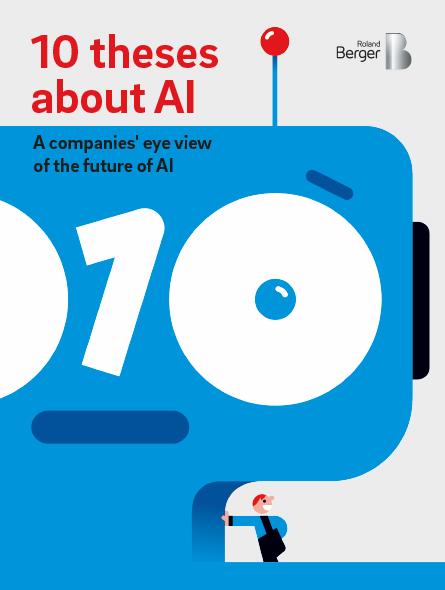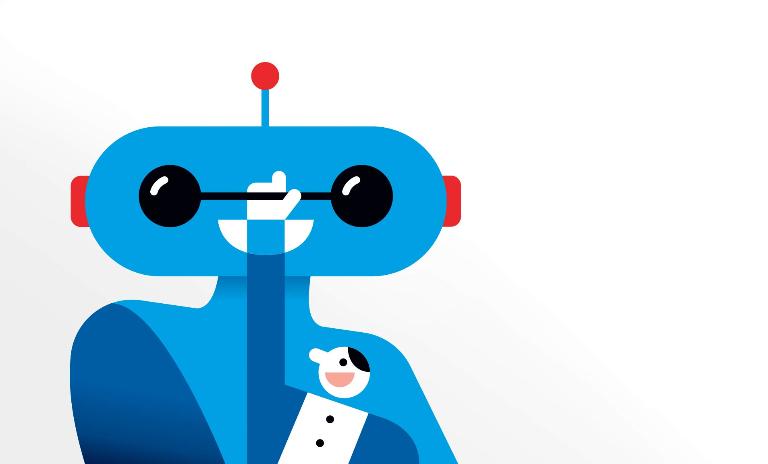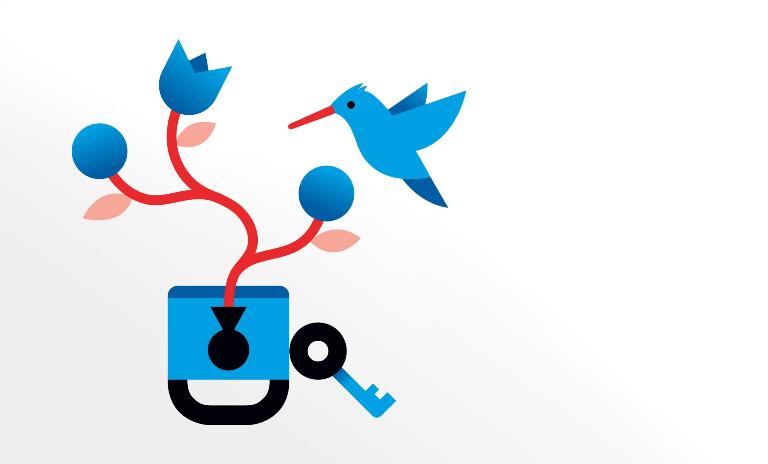Using AI successfully: people are the key
![{[downloads[language].preview]}](https://www.rolandberger.com/publications/publication_image/Roland_Berger_PUB_447_Global_10-Theses-about-AI_Cover_download_preview.jpg)
Companies are recommended to ask the right questions about how AI will affect their future business.


Artificial intelligence (AI) is already bringing about disruptive change to many economic factors. This is because the technology opens up doors to completely new business models and offers huge efficiency increases – and it’s still only in its infancy. Yet while AI is developing beyond machine learning and company business models are changing for good, the most important factor is still the individual working with AI. The Roland Berger study “10 theses about AI” provides an overview of the challenges and developments facing CEOs and companies.

Companies wishing to benefit from AI in the future must start heading in the right direction today. This includes defining the data to be used by the AI systems as well as the pertinent problems AI is to solve. Success can only come to those who know how to implement AI correctly. And by “those” we mean people. People will play a key role in the use of AI in the medium term.
The following 10 theses provide an overview of further opportunities and challenges facing companies as a result of artificial intelligence:

While more and more analytical work and other business tasks will be done by AI-empowered systems, leadership will, in the foreseeable future, remain the exclusive preserve of the human being. At the companies of the future, leaders will need formidable interpersonal skills, a sense of responsibility and a strong ethical grounding. At the same time, they will also need strong intellectual skills to partner with the machines.
Assuming they are well guided, AI systems will be able to predict business opportunities. They will provide valuable advice for specific problems. But they will not replace human strategic thinking any time soon. Intuition, diversity, a wide opinion spectrum and collective intelligence will be needed for bold strategic decisions in complex situations, and those are human core competencies that will become even more important in the future.

Digitalization has fueled the rise of internet giants. By effectively bundling and satisfying consumer demand, they are threatening the supply-side-driven business models of traditional players. Many current AI use cases still rely on relatively simple deep learning technologies where a machine is fed with huge amounts of images, text or soundbites to recognize patterns. This plays to the strengths of the American and Chinese tech giants, because data is the lifeblood of their technologies: the more, the better.
An AI-driven world dominated by today's internet giants doesn't sound like a very appealing prospect. But as we gradually move from deep learning technologies to machine reasoning and genetic algorithms, there will also be progress in the development of new forms of AI solutions and technology – such as personal, portable AI devices – that could be highly disruptive even to today's internet behemoths. Furthermore, it will help traditional companies regain direct access to consumers by connecting to them immediately.

The more customers and their behavior become transparent and predictable through AI, the greater will be the opportunity to target them across the entire consumption spectrum. It will make sense for companies to partner with other companies and target customers as a network. Within company networks, data sharing will become particularly important: one company alone does not see the "big picture".

AI brings with it uncertainties and new challenges for the established financial system. AI is facilitating specialization in small market segments and thereby enabling the emergence of a myriad of similarly unregulated smaller firms (fintechs) that offer very specific solutions. All this makes the market highly complex. The question is how can they be regulated.
Algorithms written specifically to set prices that use every possible means to exploit customers' willingness to pay to the full could push each other up without human instruction, because they have "learned" that they will all benefit from collaboration (again, read: collusion). And who would be to blame if algorithms decided to collude? In this case, it is likely that CEOs and advisory boards would be held liable for decisions made within the black boxes of their AI systems.
How should we expect AI to influence innovation? In two ways: First, AI will powerfully accelerate many innovation processes. AI is capable of accurately predicting the outcome of real-world experiments. Second, AI applications will raise innovation processes to new levels, because they have the potential to change the very nature of the innovation process. AI will itself become creative, but not in isolation. To unleash its full power, it will still need humans. We are needed to provide input and guidance. We will remain the masterminds of innovation and creativity.
Ultimate responsibility for all of a company's activities – including those influenced, prepared or driven by AI – will remain with humans, i.e. with the managers/leaders of that company. Regulators have already made that clear. Top management will be held responsible for any wrongdoings or accidents triggered by their AI systems. This poses a considerable risk to management, as algorithms in the future will tend to self-learn and self-change in an opaque manner.

AI will challenge our current consent-based privacy rule setup. Artificial intelligence can reveal unexpected relationships between data and identify completely new links. Before we have something like the portable AI described in our fourth thesis, the use of personal data will become harder to control. At the same time, data collection will be more ubiquitous than ever. A fair balance between data protection and the progress of AI will therefore be necessary. In the medium term however, data privacy might be easier to ensure in an AI-driven context as we outlined in the fourth thesis.

![{[downloads[language].preview]}](https://www.rolandberger.com/publications/publication_image/Roland_Berger_PUB_447_Global_10-Theses-about-AI_Cover_download_preview.jpg)
Companies are recommended to ask the right questions about how AI will affect their future business.